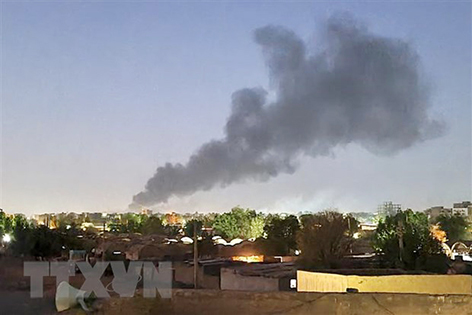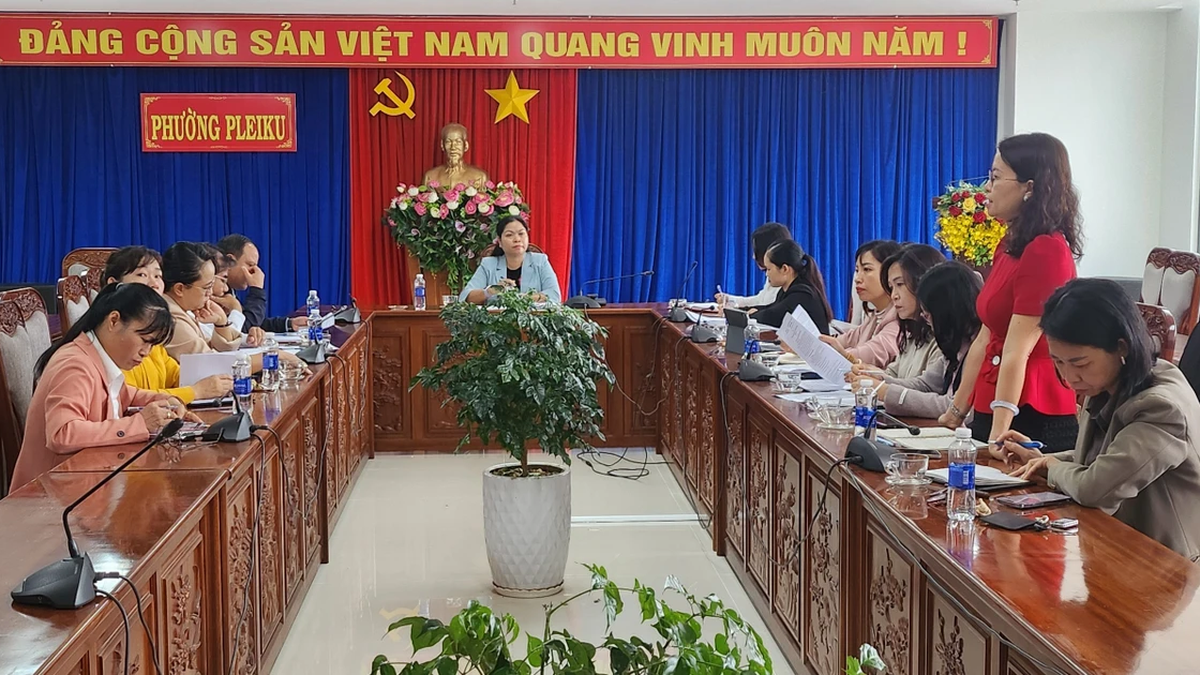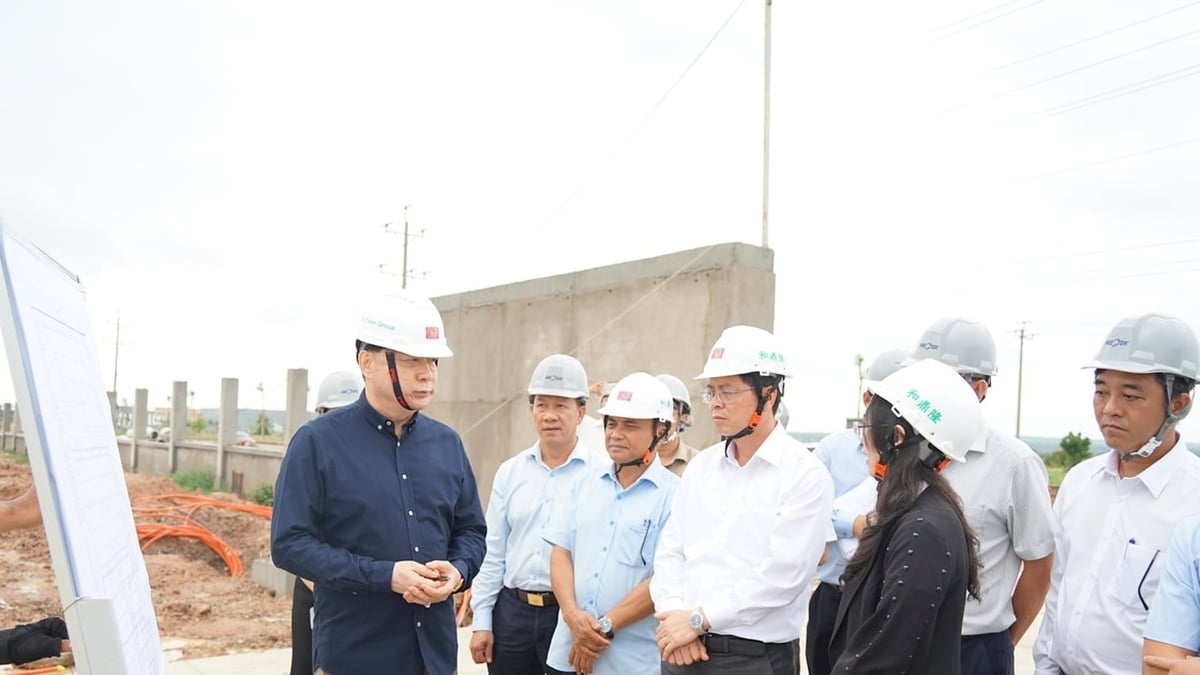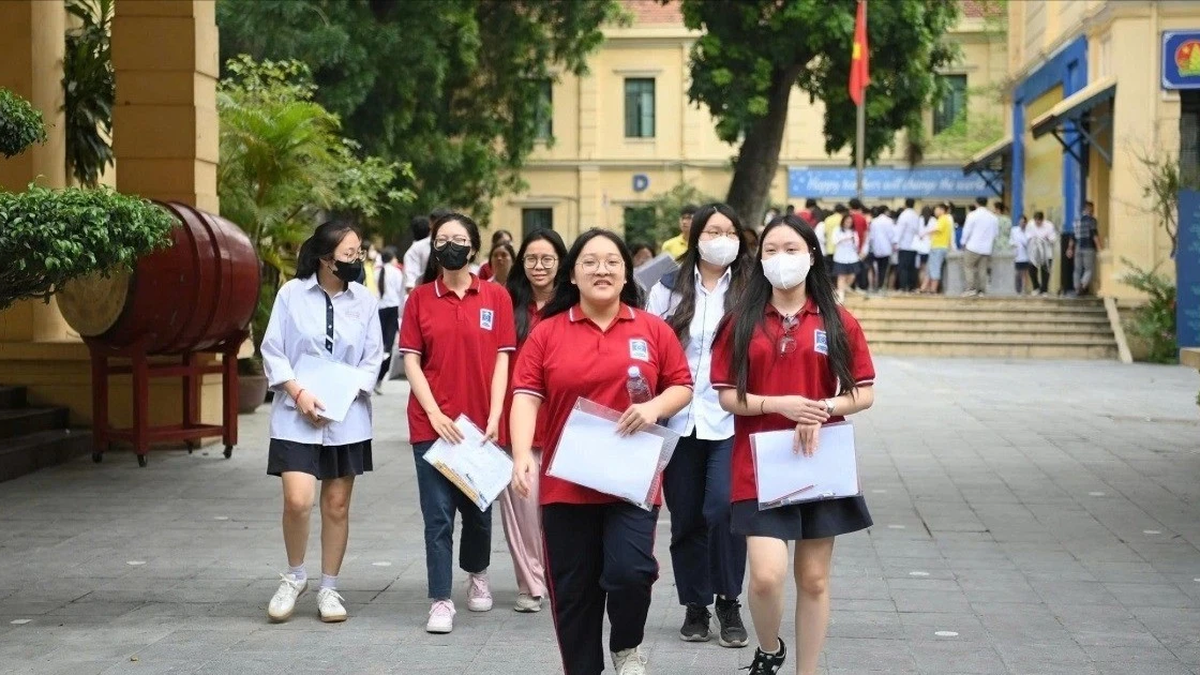Recently, General Abdel-Fattah Al-Burhan said that Sudan can escape civil war towards peace if the opposition accepts the following condition.
Smoke rises after clashes between Sudanese army and RSF paramilitary forces in Khartoum, Sudan, May 6, 2023. Photo: AFP
Accordingly, General Al-Burhan said that a peaceful solution is the optimal way to resolve the current crisis in Sudan, while emphasizing that there can be no dialogue with the rival Rapid Support Forces (RSF) without a ceasefire.
Responding to a question about RSF's readiness to accept a peaceful solution, Mr. Al-Burhan said that if a full assessment of the risks threatening the Sudanese state were made, RSF leaders would have to “wake up.”
“We welcome any initiative that saves Sudan from civil war,” Mr. Al-Burhan added, affirming that the Sudanese army is working to ensure that the conflict does not spread to other states and provinces of the country and does not develop into a civil war.
Regarding the progress of the initial negotiations between the Sudanese Army and the RSF, which were held in the city of Jeddah under the auspices of Saudi Arabia and the United States, Al-Burhan stressed that there would be no negotiations before a ceasefire and the complete withdrawal of the RSF from residential areas in the capital Khartoum. He also accused the RSF of occupying and looting houses in the Sudanese capital and suspending health services in the city.
The head of the Sudanese Transitional Sovereign Council stated that he initially considered the RSF an ally supporting the armed forces. Therefore, the RSF was provided with weapons, but after the coup, the force needed to return these weapons to the armed forces.
Al-Burhan also revealed that the founders of the RSF, Mohamed Hamdan and his brother Abdel-Rahim, had always wanted to control all of Sudan and they resorted to force after failing to achieve this ambition “peacefully or through agreements”. The commander of the Sudanese Armed Forces also claimed that many RSF fighters had defected to the Sudanese army.
In fact, it is difficult to have a peaceful solution for Sudan at the present stage when the parties involved have not found a common voice. Because, although the ceasefire has been agreed upon many times, bloody fighting is still taking place. Accordingly, a series of airstrikes took place in the capital Khartoum during the 7-day ceasefire, while the conflicting parties have not made any progress in negotiations. Although General Abdel Fattah al-Burhan, commander of the Sudanese Army and General Mohamed Hamdan Daglo, leader of the RSF, reached a ceasefire agreement from May 4 to 11. This means that the humanitarian ceasefire with the auspices of the US has not made any significant progress.
Fighting broke out between the Sudanese army and the RSF on 15 April after weeks of tension over the integration of the RSF into the regular army. Hundreds of people have been killed and thousands injured in the fighting, which has seen airstrikes and shelling in many parts of Sudan, especially the capital Khartoum. The fighting has also displaced tens of thousands of Sudanese.
Meanwhile, the UN’s top humanitarian official Martin Griffiths said Sudan’s humanitarian situation had reached a “breaking point” with millions of people unable to access basic necessities. Sudan’s former Prime Minister Abdalla Hamdok had previously said the conflict in the country could become one of the world’s deadliest civil wars if it was not brought to an end soon.
HN synthesis
Source link
























![[Photo] National Assembly Chairman attends the seminar "Building and operating an international financial center and recommendations for Vietnam"](https://vphoto.vietnam.vn/thumb/1200x675/vietnam/resource/IMAGE/2025/7/28/76393436936e457db31ec84433289f72)













































































Comment (0)